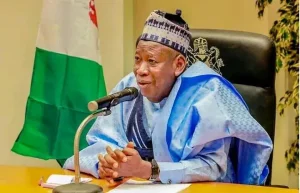U.S. Sen.
Susan Collins said she was “concerned” in March after President Donald Trump’s administration cut federal funding for Maine universities that was later restored . The Republican was “very concerned” in February about billionaire Elon Musk and his “government efficiency” assistants demanding personal information from federal employees , and she was “appalled” when the U.S.

joined Russia and North Korea in opposing United Nations resolutions making clear Russia was to blame for invading Ukraine. Liberal critics of Collins have long ridiculed her use of the word “concerned” in reacting to moves by Trump, who bashed the senator last week for not backing his aggressive tariffs on Canada that Collins called “detrimental” to Mainers. She will be on the ballot next year in a Democratic-leaning state on the heels of a massive 2020 campaign that she won.
Two months into Trump’s second term, Collins’ word choices stand out. She has critiqued Trump’s actions while largely not mentioning Trump by name. She has also often gone behind him to ask administration officials to reverse some of his moves as the president continues to target Maine over its transgender athlete policies.
While both allies and critics of Collins acknowledge she is in an uncomfortable position between her party and state, they disagree on whether her words and actions are helping Maine amid Trump’s moves to pull funding from Maine following a February clash with Gov. Janet Mills . “I think just the fact that a Republican stands up to him is pretty good,” said Mary Small, a Collins ally and former Republican state lawmaker from Bath who has never voted for Trump.
“Just going out there and ranting and raving about him isn’t going to solve the issue at all.” But Betsy Sweet, a lobbyist from Hallowell who ran in Democratic primaries for Collins’ Senate seat in 2020 and for governor in 2018, said Collins’ choice of words are not ultimately protecting Maine from “a bully.” “We can’t use the language that maybe helped 20 years ago or in a rational conversation with people who disagree on policy,” Sweet said.
“I don’t think the bully cares.” Collins chairs the Senate Appropriations Committee and wrote in a 2016 op-ed Trump “seems incapable of change or growth” in explaining why she would not vote for him. When they shared the ballot in 2020, she did not say how she voted.
She said in 2024 she wrote in ex-South Carolina Gov. Nikki Haley rather than picking Trump or former Vice President Kamala Harris. She has avoided saying whether she blames Trump for the funding uncertainty that remains amid the U.
S. Department of Justice promising consequences for Maine if it does not agree by the end of Friday to comply with Trump’s executive order on transgender athletes . But Collins’ office argued she has spoken with Trump administration officials to get them to reverse several sudden decisions to pull funding from Maine, though the federal government is continuing to use Title IX investigations to vow punishment if Maine does not ban transgender girls from girls’ sports.
“Maine has an effective legislator and committed advocate in Sen. Collins, and she will continue fighting for the state,” her office said in a statement. Maine’s other members of Congress have used similar language at times to oppose Trump but carved out distinct roles.
U.S. Sen.
Angus King, an independent who caucuses with Democrats, has said the U.S. is in “a constitutional crisis.
” King showed up in Portland on Saturday during one of the “Hands Up!” rallies happening throughout Maine to warn of the “most serious assault on our Constitution in the history of this country.” U.S.
Rep. Chellie Pingree, Maine’s most liberal member from the 1st District, has been the most direct in criticizing Trump by name while seeking to learn and share more information on the consequences of the president’s cuts to Maine programs. The most low-key member has been U.
S. Rep. Jared Golden, a centrist Democrat in the pro-Trump 2nd District who has irked progressives by essentially urging his party to not overreact to every Trump move until courts settle issues and has backed Trump’s tariffs .
But Golden also introduced legislation seeking to reverse Trump’s executive order restricting collective bargaining rights for federal workers at national security agencies and slammed Republican budget plans Friday as a “naked attempt to further tilt the system against the many in favor of the few at the top.” Mills, a Democrat who is termed out of office next year and who has not yet ruled out running against Collins, is “appreciative” of the senator’s “leadership and partnership on myriad issues facing Maine during this period of significant uncertainty,” spokesperson Ben Goodman said. “While the governor and members of the delegation may not agree on all issues, she knows they are united by a core commitment to protect Maine people and serve the best interests of our state and nation,” Goodman said.
Even ardent Trump supporters who hold elected office in Maine, such as Rep. Mike Soboleski, R-Phillips, still have affinity for Collins, which alludes to how she has not faced a primary challenger since first winning election in 1996. She will receive plenty of money from national Republicans for her 2026 reelection bid.
“The senator and the president’s differences are well known, and I like to think that she has the best interests of the state at heart with what she’s doing,” Soboleski said. Small, the former Republican lawmaker from Bath, said Congress needs “three or four more Republicans to grow a backbone down there, and then they could start negotiating” with Trump. But Sweet said Collins and Maine’s delegation “can’t be concerned about language that is going to tick off” Trump and should focus more on how constituents are affected by his policies.
“We are talking about severe hurt to the people of Maine,” Sweet said. More articles from the BDN.
Politics

‘I am concerned’: How Susan Collins criticizes Donald Trump as he targets Maine

Allies and critics of the senator acknowledge the uncomfortable position between her party and state, but disagree on whether her words and actions are helpful.














